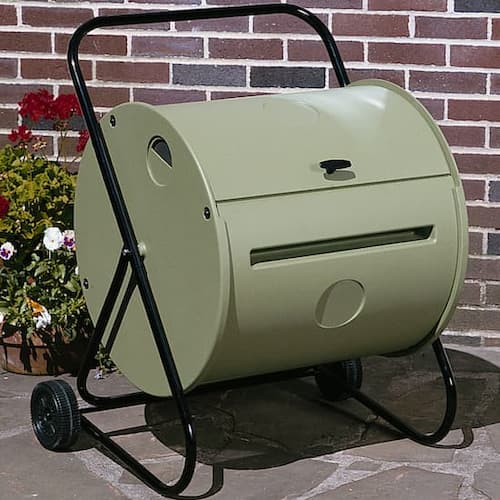What is Organic Garden Compost

About Organic Garden Compost
I think we all agree, that growing organic produces the healthiest food for you and your family. So, what defines compost as being completely organic? The answer is all about the raw materials you put into your composter. To be truly organic garden compost, all the materials that you put into your composter must be organic in nature. Very importantly, that means that this organic matter can not be treated with potentially harmful insecticides, pesticides, or herbicides. In a pure organic sense, this organic material should also be grown in virgin soil, untainted by harmful chemicals. Along with water and nutrients, plants can take up these nasty chemicals through their roots, tainting the otherwise organic nature of the plant, and ultimately the food you eat.
Let’s use lawn grass and tree leaves as examples. Untreated lawns are a great source of nitrogen-rich grass clippings (Greens), that are perfect for your composter. Fall leaves are an abundant source of carbon (Browns). Mixed together, they can become a great organic compost. However, if you treat your lawn, residual chemicals are on the blades of the grasses. The resulting compost is not organic.
Taking this example a step further, Let’s assume you used to treat your lawn with pesticides and insecticides. But, you have not done so in a year or two. Residual amounts of these chemicals can remain in the soil for years and can be taken up by the roots of your lawn. Over years, the residual chemicals can leach deeply into the ground, and be taken up by trees, ultimately making their way to those leaves that you are destined for your composter. While those residual chemicals may be relatively minor, if you use the leaves, the compost is not purely organic.

Strive for 100% Organic Compost
In today’s world, it may be difficult to be absolutely certain that your compost is 100% organic. What you can do, is consciously strive to assure your compost is as organic as possible. Give a little thought to everything you put into your composter. And, give some thought about the chemicals you plan to use around your yard. Use common sense to limit or eliminate the use of potentially harmful chemicals, for your health, and a healthier environment.
Identifying Green and Brown Compost Materials
Green (Nitrogen) Compost Materials
Brown (Carbon) Compost Materials
Composting Tip: To speed up decomposition, mix and turn your compost regularly.
Related Articles
Please support our site. Shop for:
- rmmatthews100@hotmail.com
- 585-721-6528
- Rochester, NY
©1999-2024 GardenersNet.Com, All Rights Reserved

